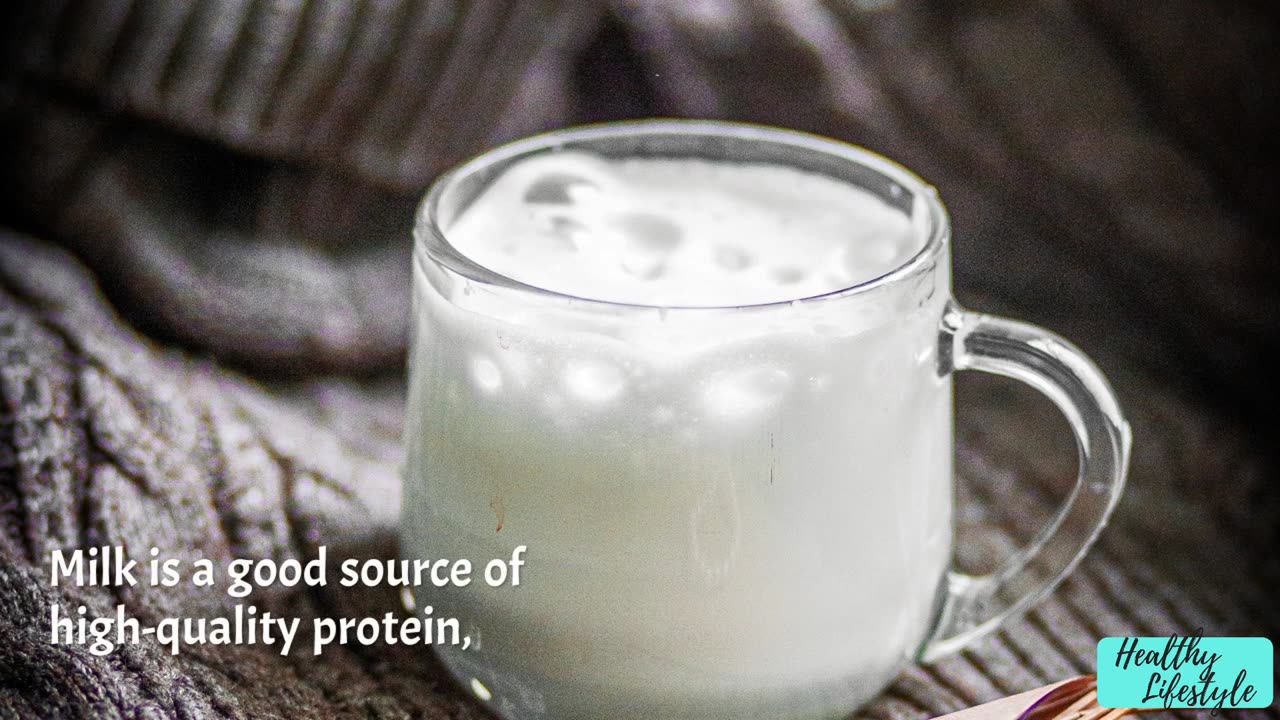Premium Only Content

What happens when you don't drink milk
Calcium Deficiency: Milk is a rich source of calcium, essential for maintaining strong bones and teeth. Without sufficient calcium intake, you may be at higher risk of developing osteoporosis or experiencing bone fractures.
Vitamin D Deficiency: Many types of milk are fortified with vitamin D, which helps the body absorb calcium. Without enough vitamin D, your body may struggle to utilize calcium properly, further increasing the risk of bone-related issues.
Weakened Immune System: Milk contains various vitamins and minerals that support immune function, such as vitamin A and zinc. Not consuming enough of these nutrients may compromise your immune system, making you more susceptible to infections and illnesses.
Reduced Bone Density: Long-term lack of milk consumption, and thus calcium intake, can lead to reduced bone density and an increased risk of osteoporosis later in life.
Dental Health Issues: Calcium and vitamin D are also crucial for maintaining healthy teeth. Without adequate intake, you may experience dental problems such as weakened enamel and an increased risk of cavities.
Potential Nutrient Deficiencies: In addition to calcium and vitamin D, milk provides other essential nutrients like protein, potassium, phosphorus, and vitamins B2 (riboflavin) and B12. Not drinking milk regularly may result in deficiencies of these nutrients, leading to various health issues.
Potential Impact on Growth: Milk is often considered a staple in children's diets due to its role in supporting growth and development. Without sufficient milk consumption or adequate replacement nutrients, children may not reach their full growth potential.
It's essential to note that while milk is a significant source of certain nutrients, it's not the only source. You can obtain calcium, vitamin D, and other essential nutrients from a well-balanced diet that includes a variety of foods such as leafy greens, fortified plant-based milk alternatives, nuts, seeds, and fortified cereals. If you choose not to drink milk, it's essential to ensure you're meeting your nutritional needs through other dietary sources or supplements. Consulting with a healthcare provider or registered dietitian can help you create a balanced diet plan that meets your specific nutritional requirements.
-
 LIVE
LIVE
TimcastIRL
1 hour agoTrans Shooter Targets Catholic Kids In Mass Shooting, Leftists Reject Prayers | Timcast IRL
31,030 watching -
 LIVE
LIVE
SpartakusLIVE
3 hours ago#1 Birthday Boy Celebrates with MASSIVE and HUGE 4.8-Hour Stream
324 watching -
 LIVE
LIVE
Barry Cunningham
2 hours agoBREAKING NEWS: PRESIDENT TRUMP THIS INSANITY MUST END NOW!
11,790 watching -
 LIVE
LIVE
StevieTLIVE
54 minutes agoWednesday Warzone Solo HYPE #1 Mullet on Rumble
74 watching -
 1:13:28
1:13:28
Glenn Greenwald
3 hours agoGlenn Takes Your Questions on the Minneapolis School Shooting, MTG & Thomas Massie VS AIPAC, and More | SYSTEM UPDATE #506
81.7K26 -
 LIVE
LIVE
Armadillofather
2 hours agoEspionage Action in the Den! | Metal Gear Solid Delta | You being here means so much!
121 watching -
 25:12
25:12
Jasmin Laine
6 hours agoDanielle Smith’s EPIC Mic Drop Fact Check Leaves Crowd FROZEN—Poilievre FINISHES the Job
57112 -
 11:14
11:14
China Uncensored
6 hours agoThis Is NOT What China Wanted To Happen
1.19K5 -
 LIVE
LIVE
ABD
2 hours agoCyberpunk 2077 | EP 2 - The Opening Act Pt.2 | 4K UHD
63 watching -
 11:11
11:11
Michael Button
9 hours ago $0.25 earnedMy Joe Rogan Experience: Behind the Scenes
3.59K2